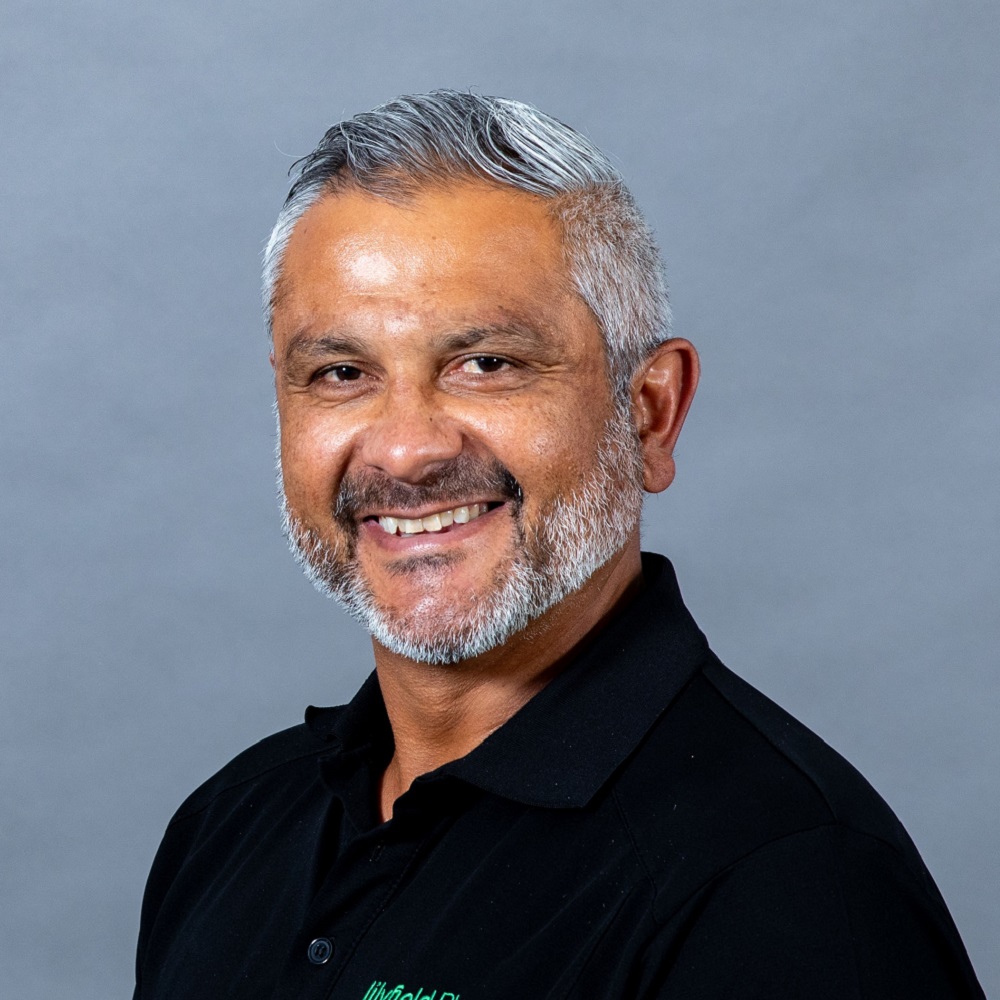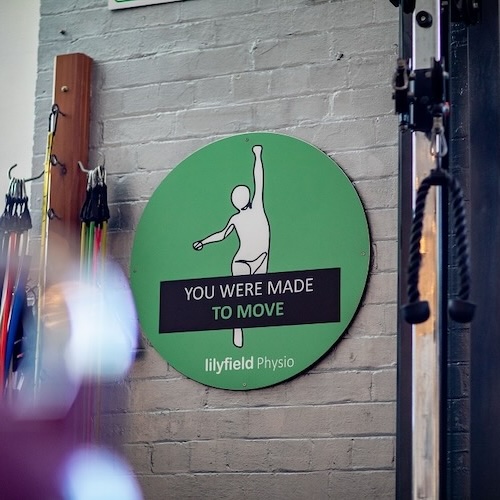Book a Physio for Headaches
Our headache physio team in Sydney is led by Karen Westcott, Principal Physiotherapist at Lilyfield Physio. With over 17 years of experience, Karen specialises in treating neck pain and headaches, using evidence-based techniques to address muscle tension, poor posture, and spinal issues. She is a Level 2 DMA Clinical Pilates practitioner and has a deep understanding of the connection between movement and pain relief.
Karen is supported by fellow physiotherapists Jan Sargood, Kam Bhabra, and Niamh Davies. Together, they provide a holistic approach to treating tension-type headaches, cervicogenic headaches, and migraines, combining hands-on therapy with tailored exercises to reduce pain, improve mobility, and restore function.
You’ll find us at:
- Mon – Tue: 7:00 AM – 7:00 PM
- Wed: 7:00 AM – 7:30 PM
- Thu: 7:00 AM – 6:00 PM
- Fri: 7:00 AM – 4:00 PM
- Sat: 8:00 AM – 1:00 PM
- Sun: Closed

How We Treat Headaches
Our headache physiotherapy services target the underlying physical factors contributing to your headaches. These include muscle tension, poor posture, neck stiffness, and jaw dysfunction. We use a combination of techniques to treat your condition:
Manual therapy involves hands-on techniques used by physiotherapists to ease tension and improve the movement of joints. It includes joint mobilizations—gentle movements of the neck and upper back joints—to reduce stiffness and improve range of motion. Soft tissue massage targets tight muscles in the neck, shoulders, and upper back to improve blood flow and relieve pressure, helping reduce headache pain caused by muscle tension.
Trigger point therapy involves applying focused pressure to specific areas in the muscles known as "trigger points." These are tight knots in muscles that often refer pain to other areas of the body, such as the head. By pressing on these trigger points, the therapist can help release the muscle tension, providing relief from tension-type headaches.
Poor posture is a common contributor to headaches, especially if you spend long hours sitting at a desk or looking down at your phone. Posture correction focuses on realigning the body to relieve strain on the neck and shoulders. A physiotherapist may guide you in adopting better habits, such as sitting with a neutral spine and keeping your head aligned with your shoulders. They will also provide ergonomic advice for your workspace to help you maintain a healthier posture throughout the day.
In addition to hands-on treatment, physiotherapists provide education and self-management strategies to help you reduce headache triggers and manage symptoms. This may include teaching stress-reduction techniques such as diaphragmatic breathing (deep breathing to reduce stress) and relaxation exercises. They may also provide guidance on improving sleep hygiene (the habits that promote restful sleep) and offer tips for avoiding common headache triggers like excessive screen time or poor hydration.
The temporomandibular joint (TMJ) is the joint that connects your jaw to your skull. Dysfunction in this joint can lead to jaw pain, teeth grinding, and headaches. TMJ treatment involves manual techniques to help mobilise the jaw joint and reduce stiffness, as well as exercises to strengthen the jaw muscles. For patients who grind their teeth or clench their jaw (often a cause of headaches), physiotherapists may recommend the use of a mouthguard to reduce strain on the TMJ and relieve related headaches.
Initial Consultation: $160
Review Assessment and Consultation: $155
Standard Consultation: $125
Please note: A cancellation fee of $83 applies for cancellations within 24 hours of the scheduled appointment. Private health rebate applicable.
Common Causes of Chronic Headaches
Headache physiotherapy targets various underlying causes, helping to alleviate pain and prevent recurrence. Here are some common types of headaches treated through physiotherapy:
Tension-Type Headaches:
- Caused by muscle tightness in the neck, shoulders, and scalp.
- Triggered by stress, poor posture, or muscle strain.
Cervicogenic Headaches:
- Originates from neck stiffness or joint dysfunction.
- Pain radiates from the neck to one side of the head.
Migraine Triggers:
- Neck tension and poor posture can worsen migraines.
- Physical factors increase migraine frequency and intensity.
Posture-Related Issues:
- Forward head posture and prolonged sitting strain neck muscles.
- Leads to headaches from added pressure on the neck and upper back.
Jaw (TMJ) Dysfunction:
- Caused by teeth grinding or jaw clenching.
- Tension in the jaw radiates to the head, causing headaches.

Ready to Live Headache-Free with Expert Physio?
If you're ready to reduce the frequency and intensity of your headaches, our experienced team at Lilyfield Physiotherapy can help. Through a combination of hands-on techniques, strengthening exercises, and education, we'll help you manage and prevent future headaches. Book your physio appointment online today and start your journey to a pain-free life.
Ongoing Rehab & Exercise Classes
In addition to one-on-one physiotherapy, Lilyfield Physio offers group rehab and exercise classes designed to support your long-term health. These classes focus on building strength, improving mobility, correcting movement patterns, and maintaining joint resilience.
With a wide range of class types and convenient times, there’s plenty of opportunity to continue progressing safely under expert guidance.
Meet Our Headache Physios
Lilyfield Physiotherapy is proud to offer some of Australia’s most experienced and highly qualified physiotherapists, committed to helping you move better, faster.
FAQs
Headache physiotherapy focuses on using manual therapy, exercises, and posture correction techniques to treat headaches caused by muscle tension, neck stiffness, poor posture, or jaw dysfunction.
Physiotherapy can help relieve muscle tightness, improve posture, and restore joint mobility, which can reduce the frequency and intensity of tension-type headaches.
Yes, physiotherapy can be effective in treating headaches caused by muscle tension, poor posture, neck stiffness, and jaw dysfunction. Techniques like manual therapy, posture correction, and exercise therapy can help reduce pain and prevent future headaches.
You should see a physiotherapist if you experience frequent or persistent headaches that are related to muscle tension, neck stiffness, or poor posture. A physio can help if:
- Your headaches are recurring or chronic and are affecting your daily activities.
- You have neck or shoulder pain along with your headaches.
- You experience headaches triggered by poor posture or prolonged sitting.
- You’ve tried over-the-counter pain relief with limited or no results.
- You want to address the underlying cause of your headaches, such as poor alignment or muscle tension, rather than just masking the pain.
A physiotherapist can assess your symptoms and provide targeted treatments to reduce pain, improve movement, and prevent future headaches.
While physiotherapy doesn't directly treat sinus headaches (which are caused by sinus congestion), it can help alleviate the neck tension and muscle strain that may accompany or exacerbate sinus headaches. Physiotherapy can provide relief by targeting these secondary muscle issues.
Yes, physiotherapy is particularly effective for tension-type headaches, which are caused by muscle tightness in the neck, shoulders, and scalp. Physiotherapists use techniques such as soft tissue massage, trigger point therapy, and posture correction to reduce muscle tension and alleviate headache pain.
Physiotherapists use a range of techniques to treat headaches, including manual therapy (joint mobilisations, soft tissue massage), trigger point therapy, and specific exercises to relieve muscle tension and improve posture. These treatments help address the underlying causes of headaches for long-term relief.
While physiotherapy cannot treat the neurological aspects of migraines, it can help reduce physical triggers like neck tension and poor posture that may worsen migraine episodes.
Many people experience relief within the first 1–2 sessions, with further improvement over 4–6 weeks depending on the severity and frequency of the headaches.
For chronic headaches, ongoing physiotherapy may be necessary to maintain improvements and prevent recurrence. This could involve regular check-ins and tailored exercise programs.
If you have private health cover and subscribe to the “extras” cover, you may be eligible to claim part of your treatment fee. There are many different schemes and you are best advised to check your level of cover with your insurer. Most health funds are online with HICAPS, which allows you to claim your health fund rebate immediately at our clinic, leaving only the gap for you to pay. You will need to bring your health fund card with you.
Yes, in some cases. Medicare now offers chronic disease management referred to as Enhanced Primary Care (EPC) plans, for people with chronic conditions. This allows for a Medicare rebate, for up to 5 physio or exercise physiology treatments a year. You must be referred by your GP and you need to bring your Medicare card with you. If you have any queries regarding this service, please don’t hesitate to speak with our staff or discuss your eligibility with your GP.
You are welcome to wear whatever you are most comfortable in. For Exercise sessions and classes, please wear exercise clothes and a pair of socks, making sure you able to move freely
Please bring along any doctor’s referral letters, scan or x-ray results and your private health insurance card so you can claim for your treatment on the spot.
Your Physiotherapist will complete a thorough assessment of your complaint and then provide you with a preliminary diagnosis and appropriate treatments based on their findings. This will generally consist of some hands-on treatment, advice and often you will receive some exercises to do at home. Your Physiotherapist will also discuss with you their plan for management which will include likely recovery time, number of sessions required and future exercise advice.
We accept cash, EFTPOS, VISA and MasterCard. If you bring your private health insurance card with you, we can process an on-the-spot claim via our HICAPS terminal and you will then only need to pay the gap fee.
Yes. Physiotherapists can refer patients directly for MRI scans, provided they have completed the appropriate training and accreditation. Your physiotherapist will determine if an MRI is necessary based on your assessment and condition.
Yes. Physiotherapists can provide medical certificates (sick notes) for issues related to musculoskeletal or physical health concerns. These certificates can cover time off work, recommendations for modified duties, or clearance for returning to regular activities.
We accept referrals for Compulsory Third-Party Insurance claims. Once you have seen your GP and received a claim number, we are able to send any invoices directly to the insurer. If you need to start treatment before you have a claim number, we shall ask you to cover the cost of the treatment and claim from the insurer later.
You can cancel and re-schedule by calling our rooms on 9810 2203. For after hours, we have an answering machine service for you to leave a message. Our receptionist will contact you shortly after it is received to confirm cancellation or to help you re-schedule.
We request that if you are unable to make a consultation or class that you let us know at least 24 hours prior to your appointment so that someone else can use your treatment time.
We have a cancellation fee policy for late cancellations or missed appointments.
This practice takes great care to ensure that our information records are accurate and are treated with full regard to the privacy of our patients. We only collect information from our patients that is necessary for good health care and aim to ensure that any information we hold is accurate, complete and up-to-date.
The health information we hold helps us provide our patients with the best possible health care, and is disclosed only to others involved in your treatment, such as your doctor. If we need to disclose information about you to people other than those associated with your treatment, we will seek your permission first.
Occasionally we may be involved in research on health issues. If any data from this practice is used in research, it will not include information which identifies our patients.
This practice is bound by the Privacy Amendment (Private Sector) Act 2000, and operates in accordance with the Code of Conduct of the Australian Physiotherapy Association. If you would like to discuss any aspects of our privacy policy, or review your health records, please advise your treating Physiotherapist or Exercise Physiologist.











